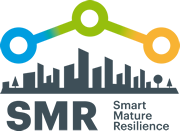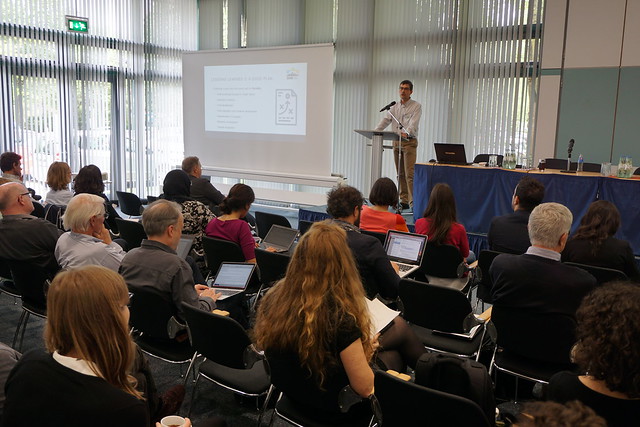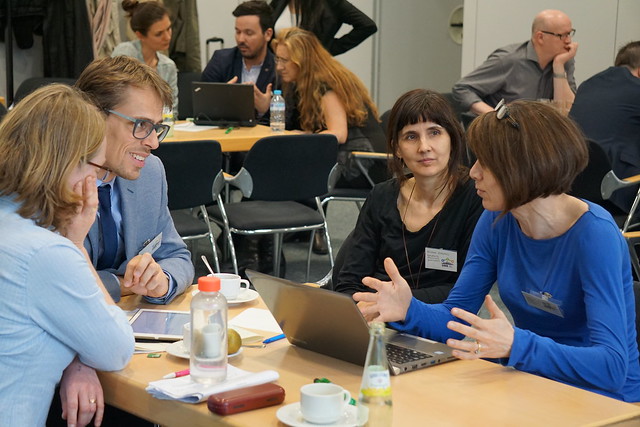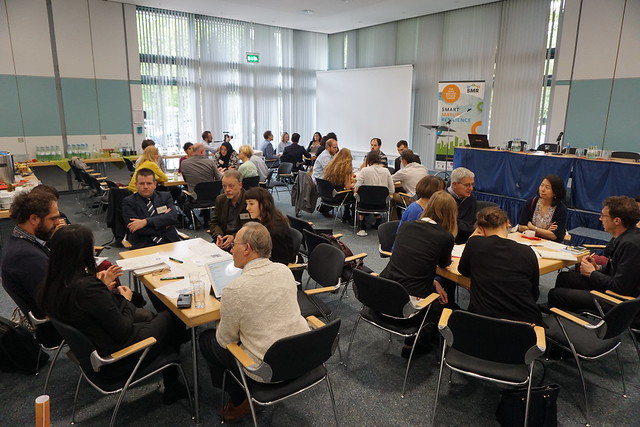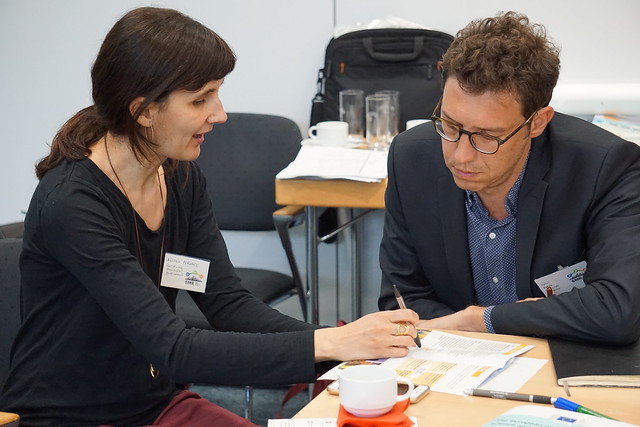Representatives of over 30 cities and regions in Europe, the European Commission and scientific experts on resilience attended the 27th edition of ICLEI Europe’s Breakfast at Sustainability’s series. The event was hosted by the European office of the Basque Country and a welcome address was provided by – Ignacio de la Puerta, Director for Urban Planning of the Basque Government. A brief introduction to the Smart Mature Resilience project and its tools was provided by Vasileios Latinos, ICLEI Europe.
Mr de la Puerta emphasised in his words of welcome the need to provide space and quality of life for Basque residents. An integrated action plan, as well as participation in numerous local, regional and international projects and programmes, such as Donostia/San Sebastián’s participation in the Smart Mature Resilience Project are addressing this need. The path is a shared one and cities in Europe are welcome to join the Basque Country on this journey by considering the pathways towards transformative action laid out in the Basque Declaration.
Cities must work together in a coordinated way towards long-term resilience goals. For Ben Caspar, Team Leader for Urban Environment for the European Commission’s DG Environment, cities have enormous potential to overcome global challenges. The Pact of Amsterdam has made funding streams easier to understand and has led to enhanced support and cooperation between the European Commission and city networks. As well as funding the European Commission offers other resources to cities, including online tools, such as a new portal planned to be launched during Green Week. Ronny Frederickx, Former President and Good Governance Project Leader, UDITE considered resilience from the perspective of good governance, and warned that lack of trust in political leaders, lack of capacity and ‘segregation in craftsmanship’ or lack of cooperation as drivers of risk. He called for a good governance approach in order to overcome these challenges, as well as for a triangle between science, education and practice.
The innovative and inspiring “Room for the river Waal” project saw attitudes among citizens to the large-scale project turn from hostility and resistance, to sentiments among citizens of pride and ownership of the project. Ton Verhoeven, Arnhem Nijmegen City Region, Netherlands shared how this was achieved through intensive communication and engagement of stakeholders.
Glasgow and Rome are working together on their resilience journey: both cities are part of the Smart Mature Resilience project as well as ICLEI members and members of 100 Resilient Cities. Frankie Barrett, Glasgow City Council and Claudio Bordi, Risorse per Roma. Public authorities in Glasgow are as of recently obliged to involve communities as part of their work, and ongoing projects range across numerous topical areas, for example food security and land use. In Glasgow’s experience, "When citizens are not involved in the plan, it will fail." Rome has used a tool produced by the Smart Mature Resilience project, the Risk Systemicity Questionnaire, to hold cross-sectoral meetings with a goal to break silos and better understand risk.
Annette Figueiredo, Greater London Authority described a recently concluded audit of school air quality in London. Poor air quality has detrimental effects on children’s learning, and a survey revealed that over 360 schools were in poor air quality areas. The Mayor of London, as part of a vision to clean up London’s air received a petition from Greenpeace signed by 303 teachers calling for better air quality near schools, and fifty schools were selected. The project involved the cooperation of the relevant boroughs, Transport for London, Public Health and other Greater London Authority programmes working with schools, researchers and academics. The collected data will be used in the schools’ curricula so that students can understand how it affects their lives.
For the second part of the day, Serene Hanania, ICLEI – Local Governments for Sustainability, invited cities to participate in an interactive workshop. Discussion groups considered topics such as heat waves, flood risks, social issues and emergency response and exchanged their experiences from their respective cities on the topics. The SMR project representatives then demonstrated how the tools co-produced in the project by cities and researchers could support the newcomer cities in overcoming the challenges they raised in the discussions.
In terms of flooding, cross-departmental silos were found to be a major challenge in British cities, as management of water courses was not closely linked to response mechanisms, and vulnerable groups were found to be more exposed to flood risk. Here, Nijmegen could explain their unique case, where better communication on water planning and management is possible due to Dutch water boards. The SMR City Resilience Dynamics tool was mentioned in a possible application to measure surface water interventions.
On the subject of heat waves, desertification and the benefits of reforestation were discussed for cities in Spain. In Italy, paradoxically, abandonment of agricultural areas and increase of rain has led to natural reforestation. The most vulnerable cities to heat waves were considered to be Athens and Rome. Here, the Risk Systemicity Questionnaire was recommended, as awareness of the risk of heat waves seriously underestimates the real mortality rate among elderly people during periods of extreme heat. Malmö, Sweden, expressed the benefits of exchanging with Southern cities with cultural experience of caring for the elderly during heat waves, as heat stress is becoming an increasing problem for Malmö. Here, better access to data on mortality rates would be helpful to gain political support for, elderly, patient and hospice care to take additional measures during heat waves.
A common feature of the cities was the importance of involving volunteers and NGOs in emergency response. While cities and municipalities must adhere to standards, guidelines and norms for emergency response, citizens can step in and provide non-professional support magnanimously, for example providing unofficial transport and meals to refugees. Dedicated policies for involving NGOs and volunteers are included in the Resilience Maturity Model.
IT solutions offer interesting innovative ways to prevent food waste and to build communities in new way. Representative democracy and transparent decision-making were considered to be crucial foundations for social resilience. Decreasing vulnerability is intricately connected to employment, and in the case of French regions, citizens can become alienated as a result of unemployment.
The cities present shared many aspects and practices around emergency response. Most cities had emergency plans and the same way of responding to an emergency. Malmö provided another perspective, for example, that experts were called in the event of a crisis. In each of the cities, in many cases, those working in emergency response have other responsibilities under normal circumstances, where response takes preference over these duties during a crisis. Risk assessment was considered essential, and the SMR Risk Systemicity Questionnaire is available to be used as part of this process.
A photo gallery of the event is available at https://flic.kr/s/aHsmeXRgWi.
